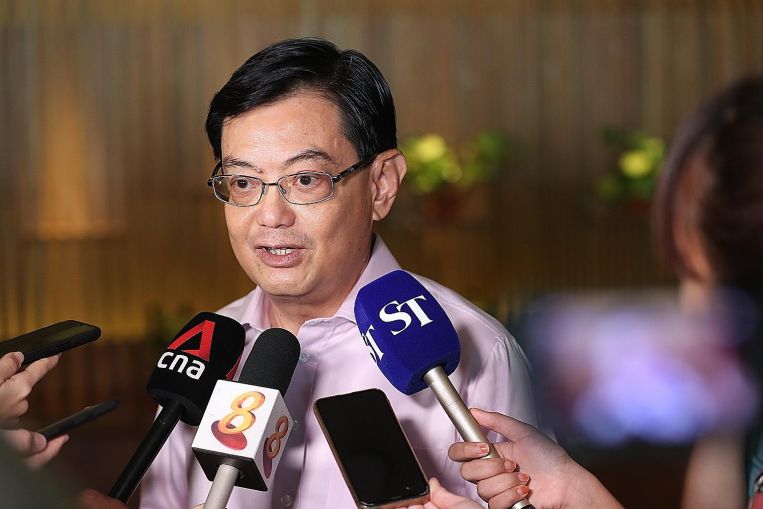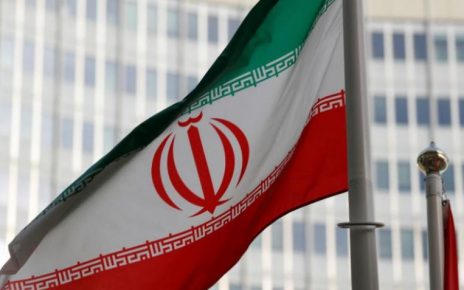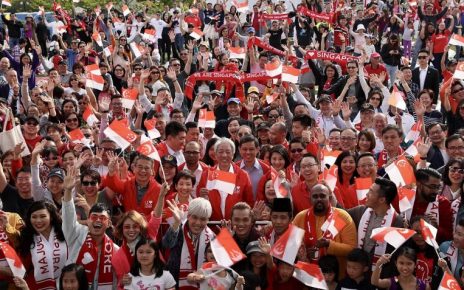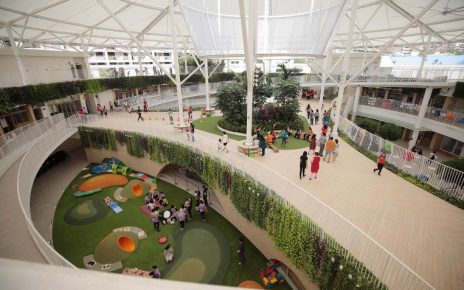
The transport and tourism sectors, worst hit by the coronavirus situation, will get targeted help in the coming Budget on top of broader measures to address any wider economic slowdown, Deputy Prime Minister Heng Swee Keat said yesterday.
The measures will aim to address companies’ short-term cashflow needs, and retain and train workers in the coming months by providing some support for part of their wage costs, he added.
Full details of the relief package will be announced at the , to be delivered by Mr Heng, who is also Finance Minister.
In a joint statement, the Ministry of Finance and Ministry of Trade and Industry warned of knock-on effects on related industries, adding that the Government stands ready to help viable companies stay afloat and workers stay in their jobs in the event of a broad-based slowdown. The ministries also noted that air traffic through Changi Airport has declined and hotel cancellations have increased.
Separately, Prime Minister Lee Hsien Loong said yesterday that and Singapore’s efforts would complement this. He said: “I have every confidence that we can overcome the challenge before us.”
Mr Heng said the situation is “fast evolving” and the Government will continue to refine its plans as necessary.
“But I want to assure Singaporeans that we are ready to take action, and that we will have a strong Budget that will help us manage this challenge,” he added.
He was speaking on the sidelines of a visit to Shangri-La’s Rasa Sentosa Resort & Spa, where he met hotel staff and taxi drivers.
The hotel was the site of Singapore’s .
The Ministry of Health here yesterday, bringing the total number of cases to 18, which includes two Singaporeans, both of whom had been on the specially arranged flight that evacuated 92 Singaporeans from Wuhan on Thursday.
Mr Heng added that some of the measures would be similar to the Government’s $230 million package during the 2003 Sars crisis.
But he noted that there have been several changes. For instance, initiatives like SkillsFuture did not exist then, which the Government will now build on.
READY TO MANAGE CHALLENGE
I want to assure Singaporeans that we are ready to take action, and that we will have a strong Budget that will help us manage this challenge.
DEPUTY PRIME MINISTER HENG SWEE KEAT
Singapore’s economic structure has also changed, with increased economic links with China and a larger tourism sector.
“While there are important lessons that we have learnt from previous packages, we must keep a very sharp analysis of what is the current situation and what is likely to evolve,” he said.
Mr Heng said the Government’s foremost priority today remains the reduction of the risk of infection, adding that coordination between the different agencies involved in Singapore’s task force is “improving by the day”.
“Those who experienced the last crisis during Sars told me that the flow of information has been a lot better, both from the Government to the industry, as well as from their management to the workers,” he added.
One of the measures announced by the multi-ministry task force headed by Health Minister Gan Kim Yong and National Development Minister Lawrence Wong are the stricter travel restrictions that kicked in yesterday.
All new visitors who have been in mainland China within the past 14 days will be barred from entry or transit in Singapore. Singaporeans, permanent residents and long-term pass holders returning from China will be placed on a leave of absence of 14 days.
PM Lee, who was addressing attendees at a Chinese New Year dinner in his Teck Ghee ward, said the enhanced travel measures are pre-emptive and meant “purely to protect our public health”.
“We know that China is doing all it can to contain the spread of the virus… It is a much stronger response than what they did when Sars first broke out, so our efforts will… complement China’s.”
PM Lee also addressed the recent bubbling of anti-China or anti-Chinese sentiment in many countries, and called it unhelpful to the cause of fighting the outbreak.
“Even though the virus started in Wuhan, it doesn’t respect nationality or race… Anybody can be infected,” he said.



